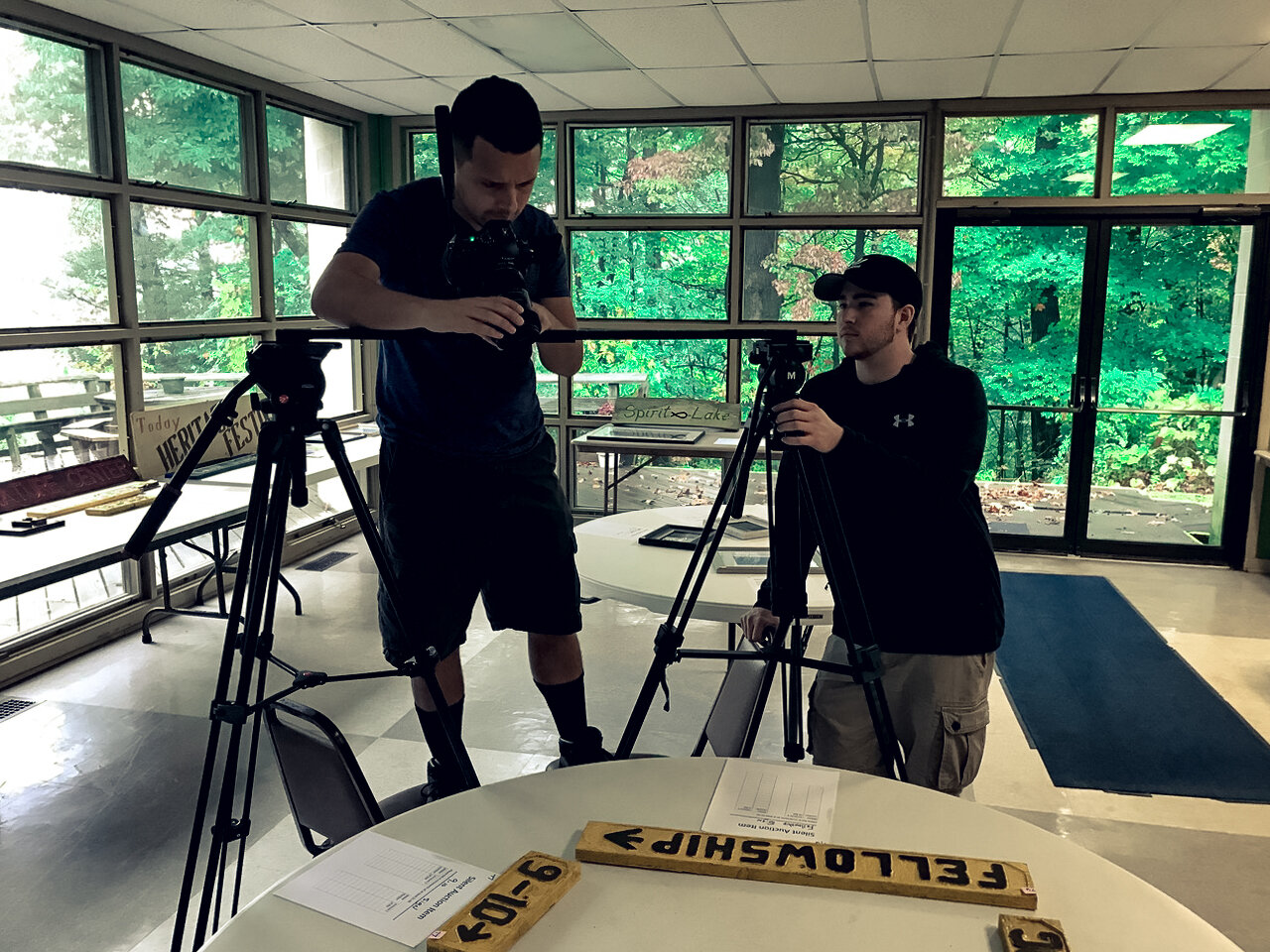Tips On Making A Documentary From A Disney Cast Member
My first part-time videography job was with Trinity United Church of Christ, located at Canton, Ohio. They hired me right out of high school during the summer of 2015. While at this job, I met a someone who pitched a documentary to me about a closing church camp. I created a proposal with a summary, concept, and budget for me to complete the film for him. Little did I know that he started a fundraising campaign for the film and blew it out of the water.
When I found out that my first feature length documentary film had completed its funding goal, I jumped for joy. That joy later turned into stress when I realized all the emotional stress that was about to happen. I luckily convinced my two best friends to help me with this project. The three of us decided that I was the Director/Editor, one was the Director of Photography, and one was the Gaffer/Composer. The decision to bring them on was probably the best thing I have ever done.
The project had fantastic moments, as well as times that we wanted to rip each other’s hair out. There was moments that we will love for the rest of our lives, and moments that almost ruined our friendships. In the end, it was all worth it to make a great product that we are all proud of. Even though the project is completed, there was a vast amount of knowledge that we wish we would’ve know while filming. That is why I am writing this article: to help someone with tips and tricks with a small documentary crew.
Here are five tips I wish someone told me when I started production of my first documentary:
1. Be Prepared To Work Multiple Roles
When I worked on my documentary, I had only two other crew members at all times. We were lucky if we had five on set, which only happened once. In a normal documentary set, you have at least ten times this amount, with most of these roles having one specific job. With a small documentary crew, you need to prepare to do multiple roles. In my documentary, everyone had a camera and was filming at all times. I highly suggest that you do the same. Be prepared for everyone to film, give interviews, run audio, and more.
2. Always Have A Backup Plan
If possible, be prepared to have multiple cameras and audio equipment. You never know when something is going to give out on a big interview day. Record your interview audio with three different audio sources, and have a safety camera somewhere. Your main audio source could be recording fine, but glitch out during the editing process. This happened to me so many times during many projects. Having a backup could cost you your job.
3. Pre-Production Is Everything
With having such a small crew, you need to plan everything you can. The more prepared you are before the shoot, the better you can plan everything out that you need that day. You don’t want to walk in with a blank slate and not knowing what to get. This is will cost a vast amount of time trying to film things you don’t need that just sit on a hard-drive. Draw up some storyboard shots, or create an outline of your story. Use this outline to come up with questions to ask and what shots you need while you film.
4. Start Using Contracts
When making any type of film, contracts are your friend. This creates a ground work between you and your crew members about who owns what in the work, who keeps any awards, how they will credited in the film, etc. This may be a new concept to you, and that is completely okay. There is plenty of websites that offer templates that you can use for free. You are not pulling a bad guy move by doing this for project. This is industry standard that every crew member has to do. You make contracts to tie up any loose ends within your project.
5. Organize Your Footage
At the end of every shoot, catalogue the footage you have and how you will use it. Make a format on how you will name every clip of footage. Make one folder for each day, each card, each interview, etc. Make a document about what is in each folder. If you do this before editing and while in production, this will save you so many headaches during editing. It sucks when you have a specific clip you want to use in the film, but then try to look for it in the mass amounts of footage you have. Naming your footage will also help link the footage easier in your project file and not cause different clips to link wrong. A good example of this is have four different clips, at various lengths, all called 0001.mp4.
6. Listen To Everyone
The hardest thing to do while doing any project is listening to everyone’s opinions. Even though they are not seeing your vision, you still need to listen and come up with a compromise. In the end, if someone thought about it on your set, someone is going to think about the same while watching your film. You need to stop production to sit down to talk about it to make both parties happy. Don’t pull a jerk move and not take any criticism. You will lose friendships this way.
Meet the Author, Brandon Young
Brandon Young is currently a Stage Technician at Walt Disney World. He is also a Producer/Director for Tom Benson Hall of Fame Stadium at Johnson Controls Hall of Fame Village. His previous experience included being a Videographer and Editor at Trinity United Church of Christ, and a Media Specialist at North Canton Community Christian Church. He has produced projects for ESPN, NASA, TED, Sherwin Williams, Hyland Software, and the Canton Palace Theatre. He graduated from Kent State University with a degree in Digital Media Production and is currently pursuing a master’s degree at the University of Denver for Professional Dramatic Writing.
He most recently completed a documentary called “One Last Summer,” where he was the director, producer, and editor. The film premiered at the Canton Film Festival and was nominated for “Best Feature Documentary” at the Las Cruces International Film Festival. He most recently wrote a feature script called “McDonald’s Massacre” that has been accepted into eleven script writing competitions, including “Best First-Time Screenwriter” at the New York Genre Screenplay Competition and placed in the Top 3 at the Ivy Film Festival in Rhode Island. He has also a screenplay screener for the Atlanta Film Festival Screenplay Competition and is on the board for the Canton Film Festival.





